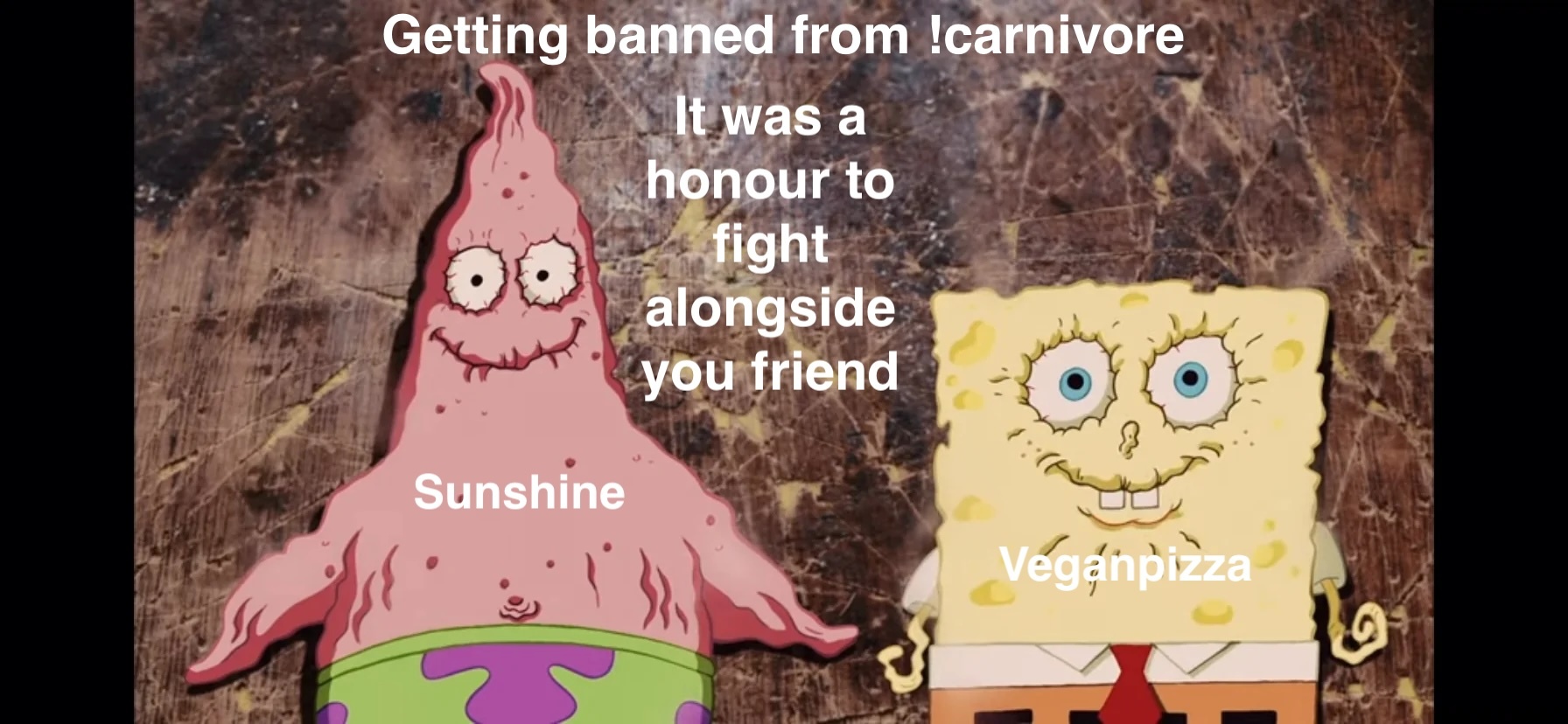this post was submitted on 16 Jan 2025
9 points (68.0% liked)
Vegan Circlejerk
264 readers
18 users here now
we absolutely respect veganism and what it stands for but
Unjerk: [email protected]
Yum: [email protected]
founded 8 months ago
MODERATORS
you are viewing a single comment's thread
view the rest of the comments
view the rest of the comments

Wait, I need to post some facts first.
edit: looks like they switched to mod-posting only. I was getting ready to rummage through my library of papers.
ㄟ( ▔, ▔ )ㄏ
I will start: the carnivore diet is completely unhealthy and the lion diet is even worse.
But the cardio you get from running down a gazelle is insane (I can only assume that's part of the lion diet)
The lion diet is misleading as it actually means eating only beef.
That's.... Wow, just wow. People would rather come up with and try to justify something like that than just eat a vegetable
Carnivore diet is definitely unhealthy. Need a balance with fruits veggies and nuts.
There is literally no need to eat meat. There isn't some magical balance, the research on healthy longevity makes it pretty clear that more plants is good and less meat is good, as overall rules.
The "carnivore" fans aren't relying on research, they're reading tangential papers like reading tea leaves to divinate the truth. It's a closer to alchemy and witchcraft, but they call it "biohacking".
Yes yes I get you have your ideology but if were speaking straight facts you're just wrong. The exact same argument could be made about there being no need to eat vegetables or fruit; carnivore diet isn't healthy, but it won't literally kill you. To be clear I'm not making that argument personally though, vegan diet is less unhealthy than carnivore diet obviously.
Too much red meat can be bad for you, but that is not the ame statement as any at all is bad for you. People eat way too large of a ratio of it compared to veggies and fruits which exacerbates that.
The simple fact is that we're omnivorous and that's the healthiest diet. But i also know you've heard this countless times and will just hit back with "but I don't eat meat and I'm healthy!!!!" So I'll just stop there and save us both the trouble.
The exact same argument can be made by anyone profoundly ignorant, sure. Not you, of course. Right? The scientific evidence about a "carnivore diet" is close to zero, it's a joke. It's like the scientific evidence concerning an "all cheese diet" or an "all snickers diet". You don't get to declare https://en.wikipedia.org/wiki/Equivocation here.
Low doses usually have low effects. But you don't know the maximum dose either, you're just doing the "the truth is somewhere in the middle" pseudoscience shtick.
Animal flesh, meat, is presented by carnivores as a necessary and vital nutrient. If one used that ketone fueled brain harder, one would understand that the science proves that it's not.
The trend for meat consumption is bad for long-term health in the science. The trend for plant consumption, especially whole foods, is good for long-term health in the science. Do you understand what this dose-response aspect is?
You're literally arguing for some "low dose" case for meat, and that itself is a counter-argument against eating meat. Animal flesh isn't some rare vitamin in a dose so small that it fits between your teeth, it is consumed in large chunks of mass, supposedly filling up your stomach. Some people consume some bits of organs of animals, especially as health supplements, hoping to get health boosts; they're fools and it's a scam, but that's a "low dose" situation of animal consumption. With meat, muscle and adipose tissue is what we're referring to, and that is sold by larger mass units of measurements, something that matches the volumes of our stomachs.
When you argue for a low dose of what some people consider a staple, you're already accepting that it's not necessary.
Really? Countless? I literally know 1 other vegan and 1 vegetarian. My anecdote cancels yours.
It’s not ideology, the whole foods plant-based diet is scientifically objectively healthier. It greatly reduces your risk from chronic diseases and can extend your lifespan for 6-10 years.
Source
Source
Source
Source
Source